Winter Duck.
Posted on | January 9, 2016 | 1 Comment
There are lots of ways to know when winter has finally arrived. We don’t use snow or ice as an indicator around here because that is usually a surprise attack that occurs just as the season is on its way out. And cold temperatures aren’t enough because we are lucky enough to have 70 degree days sprinkled liberally throughout November, December, and January. For me there are 3 main signs that winter is here and the chores need to be adjusted accordingly.
First, all the leaves are finally off the trees in the winter. During fall I spend every free afternoon attacking the leaves falling in the front and back yard. I can’t wait until all the leaves are down to rake because the grass will get smothered long before that time. This, of course, raises the question of why I planted grass in the woods, but I try not to think about that while I work. Years ago I insisted The Other Half spend a lot of time and money taking down huge established hardwoods so that I could grow grass. And I’ve been planting trees and bushes and making perennial beds to cover the grassy space ever since I discovered that grass has to raked, mowed, and seeded every year. Luckily, the fall leaves are helpful for mulching those trees, bushes, and perennial beds.
Now you might think that as soon as the last leaf is piled into the perennial beds I can put the rake away until next year. Not so. Raking the grass is a fall chore. Raking the perennial beds is a winter chore. Because once winter sets in, the foraging for the chickens gets a little thin and they head to the mulched trees, bushes, and perennial beds to dig up yummy worms and bugs. So each day, as I go to the barn for feeding, I am greeted by happy, healthy free range chickens and the nicely raked mulch scattered all over the grass. It’s hard to say if re-raking the leaves is as annoying as feeding chickens that are barely laying eggs. It’s kind of like the grass thing. I try not to think about it too much.
The second way I know it is winter is when I cannot put off the garden housekeeping anymore. As night temperatures get too cold for some of the crops and as it gets so wet and rainy that the slugs advance into the crops covered by row covers, I gradually abandon the garden. Lettuce, spinach and chard will limp along but pickings are slim and the ground really needs a rest before early spring crops go in by February. So in winter it’s finally time to take down the remains of the summer garden and start covering the rows to smother the chickweed and henbit that want to take over. This year I chose a beautiful sunny day with temperatures in the 40’s. Which was cold enough for gloves for my fingers but warm enough for flip flops for my toes. Perfect.
I left some of the nylon string and cattle panel trellises because I might be able to rotate the climbing crops without pulling those down. But the last of the garden stakes, T-posts, rebar, and bamboo poles came out of the ground and were stacked by the fence.
All the twine, plant labels (AKA spoons with marker), and rocks used to hold shade cloth in place or divide seeding sections were gathered from the rows.
I gathered all the old, leaky tarps that are only good for gardening and laid them over the beds to smother weeds. I held them in place by piling all the support cages on top of them and or leaving a pile of brush on the end to disintegrate over the rest of the winter.
When I ran out of tarps, I spread out some of the leaves that The Other Half hauled down to the garden for me when he was raking the back yard. Leaves. The never-ending resource that results from growing grass in the woods.
Then I turned all my gourds to keep them nice and round.
And called it a day. ‘Cause maybe my toes were a little bit cold. When it’s too cold for flip flops during the garden housekeeping, it’s finally winter.
The last sure sign that winter is here shows up on the deck. Winter means the arrival of Blackbeard. We bought Blackbeard along with a small group of other Muscovy ducks back when we were raising and selling free range duck to restaurants. All that started over 10 years ago which means she’s at least that old, but probably older because she arrived as an adult. She quickly established herself as an excellent broody hen and a great mother—successfully hatching almost every egg in her nest and taking care of not only her own ducklings, but any ducklings of any age that were hatched in an incubator or hatched and abandoned by another duck.
She’s very friendly, allows herself to be petted (if you have food), and is scooped up pretty easily when necessary. She’s smart enough to avoid the dogs in the backyard and predators down by the pond at night. Her worst naughty habit is an occasional dip in the koi pond. Which in a world of runaway Great Pyrs, magnolia-and-rose-bush-eating goats, and sheep that break off their horns in the fence, seems negligible.
When we sold off the duck part of the farm, we kept a few of our favorite ducks including Blackbeard. But the remaining flock was unhappy with the decrease in numbers (from 300 ducks to a dozen) and all the rest of the ducks gradually migrated to neighboring farms or just flew off, never to be seen again. All except Blackbeard. Who stayed—swimming in the pond, browsing the woods, hanging out in the barn, and brooding a nest every year, whether it was some of her old infertile eggs or chicken eggs or whatever else she could find to feather and sit on.
I don’t know if ducks get lonely for other ducks. But a few years ago a family came to choose their goat kid and saw Blackbeard in the barn. They mentioned they had 1 runner duck at home that was the only remaining duck after their Great Pyr played with the other ones. Played with them until they were dead. (Oy.) They offered to bring the duck to us for free when they were picking up their goat kid. We agreed and Max became Blackbeard’s constant companion during spring, summer, and fall.
Sooner or later, though, I wake up to frost on the ground and Blackbeard on the deck. As soon as I come out she comes over to me and I dutifully pass out a sprinkle of dog food. The rest of the year she eats with the chickens or scavenges out of the pig trough or begs for grain in the goat’s feed room. There’s plenty of food around this place. So I never understand why she moves onto the deck each winter. It’s just what she does. And passing her a bit of dog food while we’re getting the feed for the Great Pyrs in the barn or the puppies in the house is just what we do in response.
Don’t take that to mean she’s patiently waiting for me when I eventually arrive outside. Since I no longer have to milk I was looking forward to spending my mornings in the house, waiting for the weather to warm up and the hoses to unfreeze before heading out to the do animal feeding. But now I have to turn my back to the big window while I’m sipping my coffee and reading the news. Otherwise, I have to face Blackbeard eyeing me through the window.
And eyeing me.
And eyeing me.
And really, really eyeing me.
Ducks can’t talk. Muscovy ducks can’t even quack. But she doesn’t need to talk. I know she isn’t wondering who forgot to fold and put away the laundry on the window seat. She’s wondering when I am going to put down my coffee cup, get off my butt, and start passing out dog food. When I feel duck eyes boring into the back of my skull, I know winter is here. When the kids wake up to the sound of me muttering in the kitchen, “Hold your darn horses already” or grumbling from the coffee pot, “Go away. I’ll be out when I get out there,” or yelling at the window, ” Fine! I’m coming!” then they know it’s winter time, too.
This is the country. We do things differently. We wake up to the sound of roosters and go to bed listening to Great Pyrs barking at coyotes. And we tell seasons by duck. It’s just what we do.
Comments

One Response to “Winter Duck.”
Leave a Reply
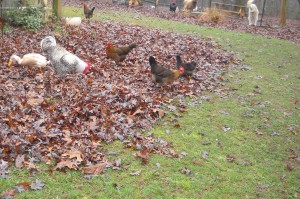
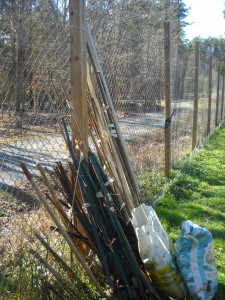
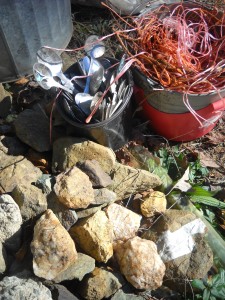
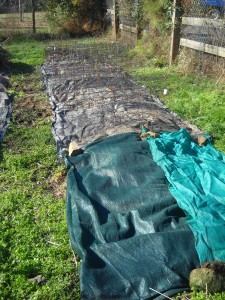
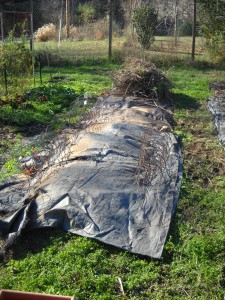
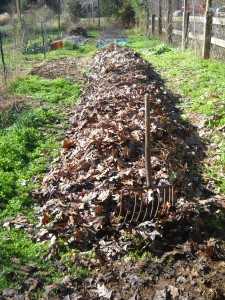
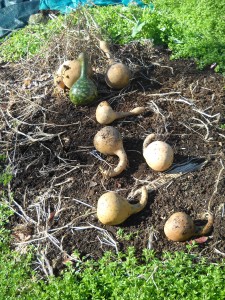
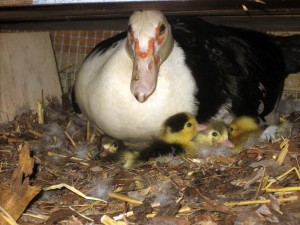
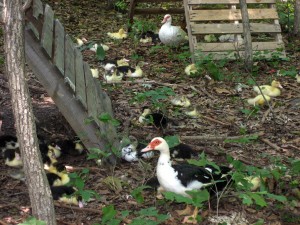
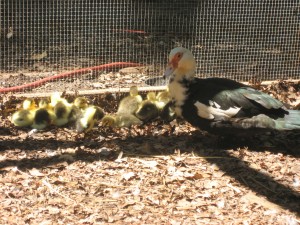
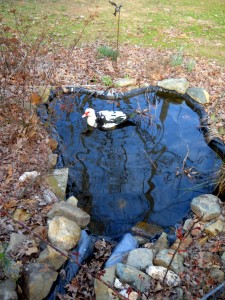
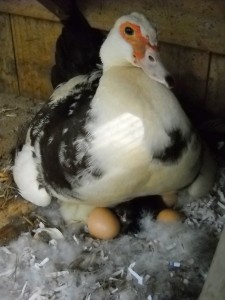
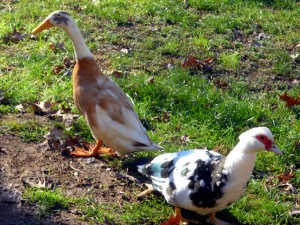
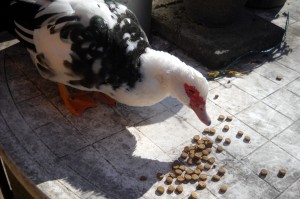
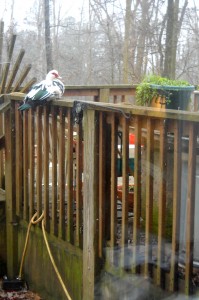
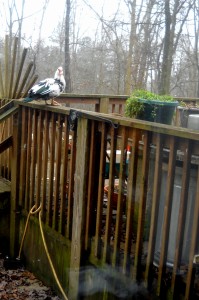
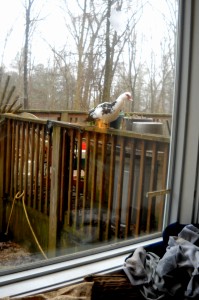
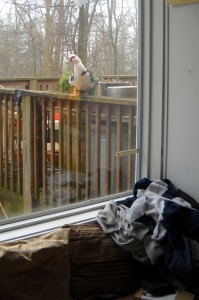



January 10th, 2016 @ 8:18 am
That’s a serious duck eye!